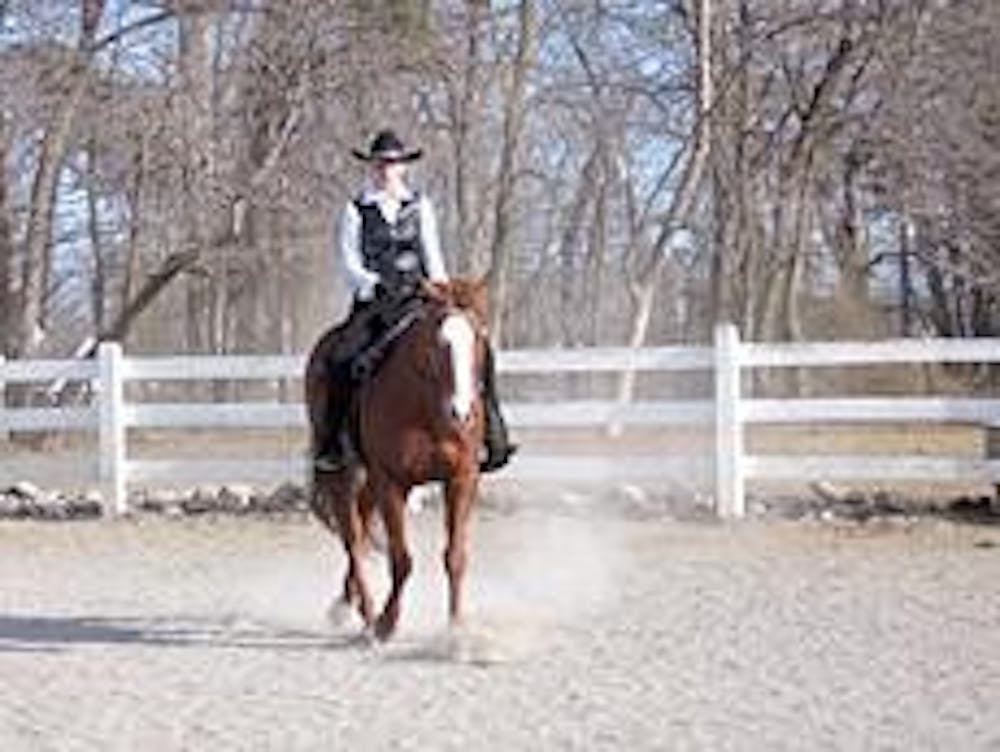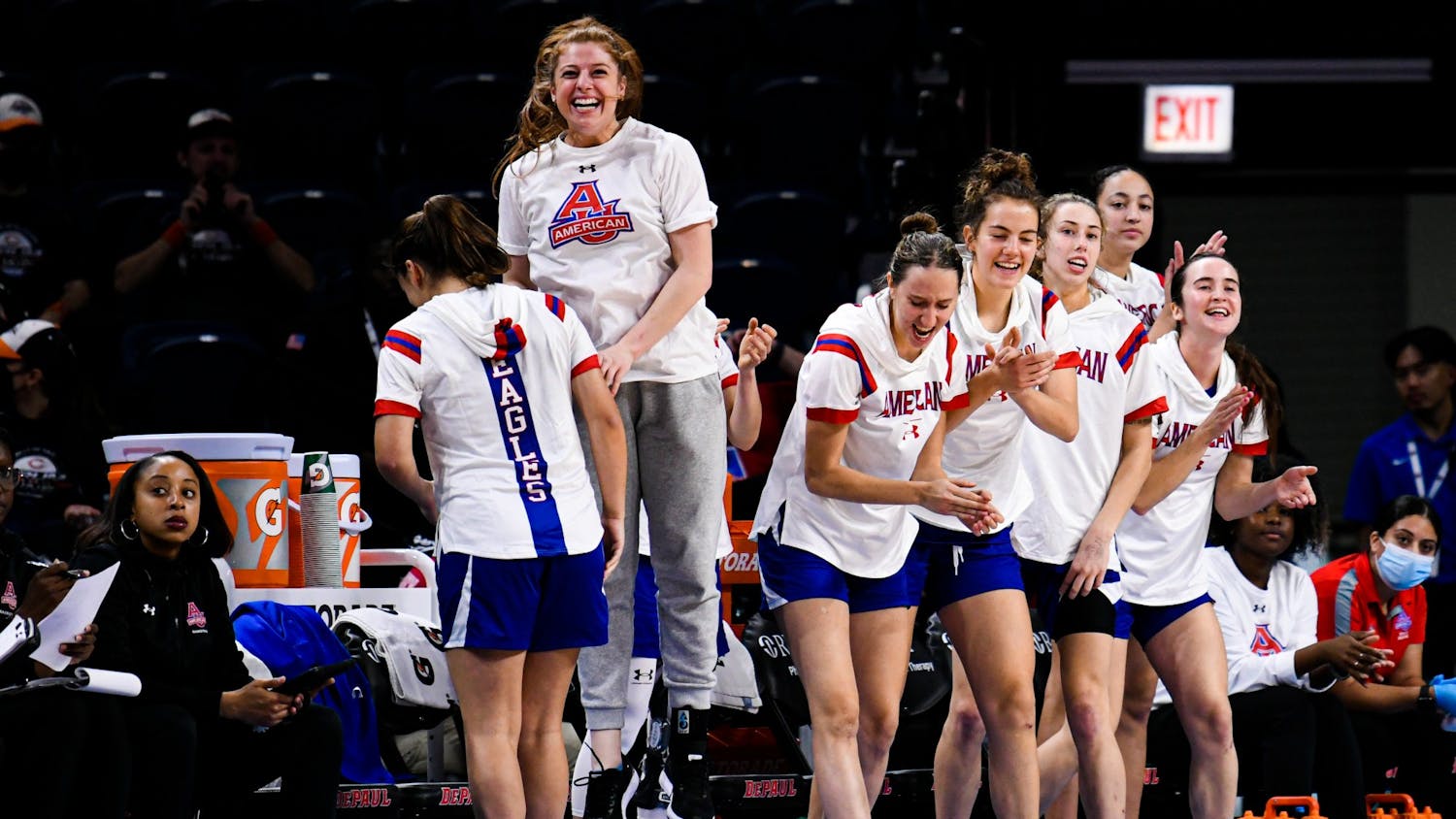Although equestrian may seem like an obscure sport to many, AU's club team has drawn attention to itself by making noteworthy progress.
The team, long dormant, was revitalized in fall 2003 by juniors Lana Ciaramella and Jesse Loutoo.
"I came to AU knowing that there wasn't a team, but after I got here I knew I couldn't go that long without riding," Ciaramella said.
She investigated possible riding grounds around the D.C. area. When she came across Clay Hill Stables in Springdale, Md., run by Emmie Prettyman, she discovered that it had been AU's riding ground years ago.
The team competes in English and Western riding. English riding consists of riding at three different paces - walk, trot and canter - as well as jumping over fences. Western riding, less common on the East Coast, concentrates on demonstrating different commands, such as loping in big circles and coming to a sliding halt.
Riders on the team have experienced success in both schools on all different levels of competition.
Sophomore Kirstin Dillingham made AU history last year as the first rider ever to compete at the national level. This year she continued to dominate. She placed out of advanced Western in the winter and by the end of the spring season she topped open division and was high-point rider for the region. She will once again represent AU at nationals this May.
Ciaramella placed fourth in intermediate flat at the regional level, and junior Lauren Barredo placed fourth in regional competition for intermediate Western.
Sophomore Emi Piez placed 10th in the region for open-flat rider. Senior Samie Facciolo pointed out of beginner walk-trot-canter into advanced walk-trot-canter, along with freshman Callan Kruchten. Freshman Rachel Isaman competed in intermediate flat and novice fences.
Prettyman, the team's instructor and coach, is impressed with the team's progress and attitude.
"The more they ride, the better they get," she said. "They are amazing in their commitment. They all try very hard and they also help each other."
The team practices once or twice a week, but the stables in Prince George's County are an hour commute by Metro. This means four to six hours to be set aside each practice. Once the riders get to the stables they tack up their horses and take their lessons. Before they leave, they must cool down the horse and put back all the equipment.
Being on the team is a financial commitment as well. Expenses include paying for lessons, traveling and entry fees to each show. However, Ciaramella has concentrated on trying to reduce the costs as much as possible.
"The university covers a very minimal amount since we are a club sport," she said. "We pay for lessons, but we will be reimbursed for our entry fees."
Piez spoke of the psychological challenges that riders face as well.
"It's a very difficult sport, and it can be frustrating if you are off on a certain day or the horse is off," she said. It definitely teaches you to be patient and work through things."
However, Piez was emphasized that the benefits outweigh the challenges.
"It's great to be able to have a place to get out of the city and spend time with the horses," she said. "It's so nice to go out there and just ride and talk to your friends and hang out"





